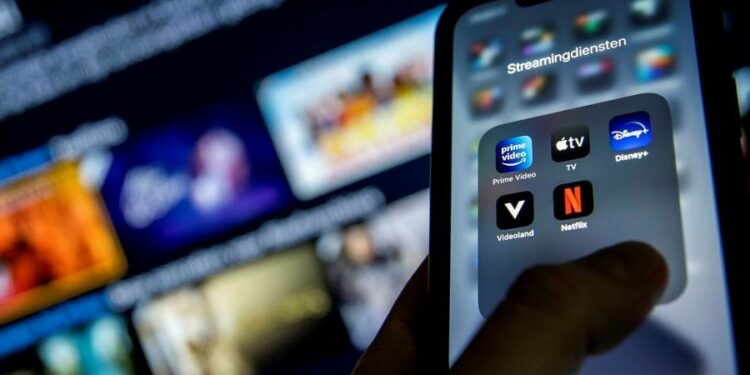For viewers, one of the joys of Netflix has been the ability to gorge on hours of top-class TV without ever encountering an ad. Now, the streaming giant is introducing a new subscription tier that runs adverts alongside its shows — albeit at a lower price point. The U-turn on something that had been anathema is the latest sign that the economics of the on-demand app industry are becoming stretched. The instant gratification once dished out by streaming, ride-sharing and delivery services may become not only less instant, but also less gratifying.
In recent years, Netflix, Uber, Deliveroo and the like have spoiled customers. From original, binge-worthy (and ad-free) dramas at a click, to rapid taxi shuttles and a buffet of global cuisines delivered right to the doorstep — all at minimal expense. In a period in which real wage growth stagnated, low-cost apps made us all feel better off.
A decade of cheap cash also stoked an investor boom in the on-demand economy, which subsidised content, rides, and deliveries at below cost prices to drum up demand. Investors betted the strategy would eventually garner large market shares, far outweighing the early losses.
With interest rates rising, investor cash and optimism are dwindling. Providing slick services at unbeatable prices is much harder. Prices need to go up, costs need to fall, and new revenue streams need to be found to keep investors engaged. Hence the quest for advertising revenues by Netflix, Disney Plus and other streamers. Uber’s road to profit (after over a decade of losses) has in part been paved by rides becoming more expensive.
Higher living costs also make the on-demand business harder. Consumer appetite is under strain, putting pressure on subscriptions. The boost provided by the pandemic, when people were locked down and barred from restaurants and cinemas, has passed. Netflix amassed over 36mn subscribers in 2020, but holding on to them, and attracting more, is harder. A cache of TV shows and fast takeaways seem more like a luxury as inflation erodes real spending power, as reflected by Deliveroo’s widening losses in the first half of 2022.
The money thrown into the convenience economy has also created a crowded marketplace. Couch potatoes can choose between Netflix, Amazon Prime, Disney Plus and others, and a glut of ultrafast delivery and takeout services; ride-seekers can switch between Uber, Lyft and Bolt. Streamers are starting to drip-feed episodes, to prevent consumers from devouring entire series then quickly cancelling direct debits. Competition would generally be expected to boost quality across the industry, but it also means more user time wasted screening various apps, and potentially multiple subscription bills.
Regulation is kicking in, too. A UK Supreme Court ruling last year means Uber’s drivers are now considered workers, with the added costs of minimum wage, pensions, and holiday pay. Similar rulings elsewhere are increasing pressure on gig-economy companies to raise pay and benefits for workers. Competition for drivers between ride-sharing apps also portends higher wage, and ultimately price, pressures — not to mention longer waiting times.
When cost of living pressures finally ease, consumers may once again be willing to pay higher prices and reopen closed subscriptions. Meanwhile, consolidation, casualties, and bundling could yet change dynamics in the industry. Either way, the multiyear summer of cheap and easy consumer convenience looks for now to be a thing of the past. It was good while it lasted.











